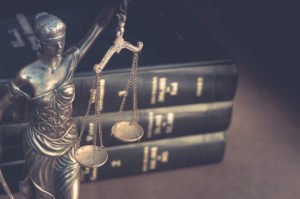
Elder abuse is when someone inflicts harm on an older person with or without intent. Someone close to the senior, such as a family member or caregiver, can be the one to carry out the mistreatment. It also can be someone outside the family, such as a staff member at a residential senior care facility.
The physical and psychological trauma from the abuse can cause the victim’s health to deteriorate if they do not receive proper care. This breach of trust can also lead to depression, stress, anxiety, and a loss of life enjoyment. It may even drive the elder to suicide.
Elder abuse happens when someone decides to take advantage of the elder’s helplessness. A victim with Alzheimer’s, for instance, would not have much control over their finances, making it easy for abusers to steal their money.
Elder abuse is a prevalent issue in the United States, with an estimated 10% of senior Americans experiencing it every year, according to a U.S. Department of Justice (DOJ) report. However, the problem is thought to be more widespread because many abuse cases go unreported. You might not know it yet, but your senior family members could be victims of elder abuse in the nursing homes where they live.
Familiarizing yourself with elder abuse and its various forms will help you recognize its signs when visiting your loved ones. You can also take legal action against the people or entities who committed these abuses.
Different Forms of Elder Abuse
The five basic types of elder abuse are:
Physical Abuse
This is the intentional use of force to inflict injuries, pain, or discomfort on the elder. While this often means striking or shoving, physical abuse can also mean denying medical treatment or medications, starving, or putting restraints on them.
Emotional Abuse
It is any treatment that causes psychological anguish to the elder. It can entail humiliating, threatening, or yelling at them. However, abusers may also inflict emotional abuse by isolating the victim from loved ones or restricting them from doing activities they like.
Sexual Abuse
This type of abuse can involve the older person getting forced into doing sex acts or touching themselves. However, it may also mean other actions, such as forcing the victim to undress or making them watch pornography.
Financial Abuse
Financial abuse is the use of the elder’s finances and other assets without their permission. The abuser might start by stealing money or using credit cards. However, it can also escalate to signature forgeries or even changing the names on wills and bank accounts.
Neglect
Neglect is when a designated caretaker does not meet the elder’s needs, whether intentionally or not. A caretaker might feed the elder food they are allergic to or not give them their prescribed medications. They might also ignore the victim’s hygiene or their dwelling’s cleanliness.
These different types of elder abuse can often overlap with each other. For instance, both physical and sexual abuse can also cause emotional distress. Abusers may also use threats and insults alongside their more physically abusive actions.
For a free legal consultation, call 800-712-9119
Recognizing the Signs of Elder Abuse
Many people might find it challenging to identify the signs of elder abuse, especially if the elder has dementia or another mental health disorder. The abusive person may even use such conditions as an excuse for their injuries or strange demeanor. However, you might notice some tension between the abuser and the elder when you are with them. A caregiver may act more controlling or refuse to leave you alone with your senior loved one. The victim might also act afraid specifically around this person or others in general.
You may also search for additional signs. Bruises, scars, bone fractures, or drug overdose might indicate physical abuse. Sexual abuse can mean additional bruising or bleeding on the breasts or genital area. Common indications of neglect include significant weight loss, malnutrition, or a dirty appearance. The elder may also have untreated injuries such as bed sores.
As for financial abuse, you might discover that the elder’s bank accounts have suspiciously large withdrawals. Their credit card statements might be too high, or they may have personal belongings or cash missing. There could also be revisions in the elder’s will that seem suspect, such as a relative getting an unusually large portion of their estate.
Seek Justice Against Elder Abuse
If you want to find out more about what elder abuse is, or if you can take legal action against a suspected abuser, you will need to speak to an attorney who handles such cases.
The office of Ben Crump Law, PLLC, can give you sound legal counsel and help you file a lawsuit against those who violated your senior loved one. We are available for your inquiries 24/7. If you would like a free consultation on your case, call us at 800-959-1444.
Call or text 800-712-9119 or complete a Free Case Evaluation form








